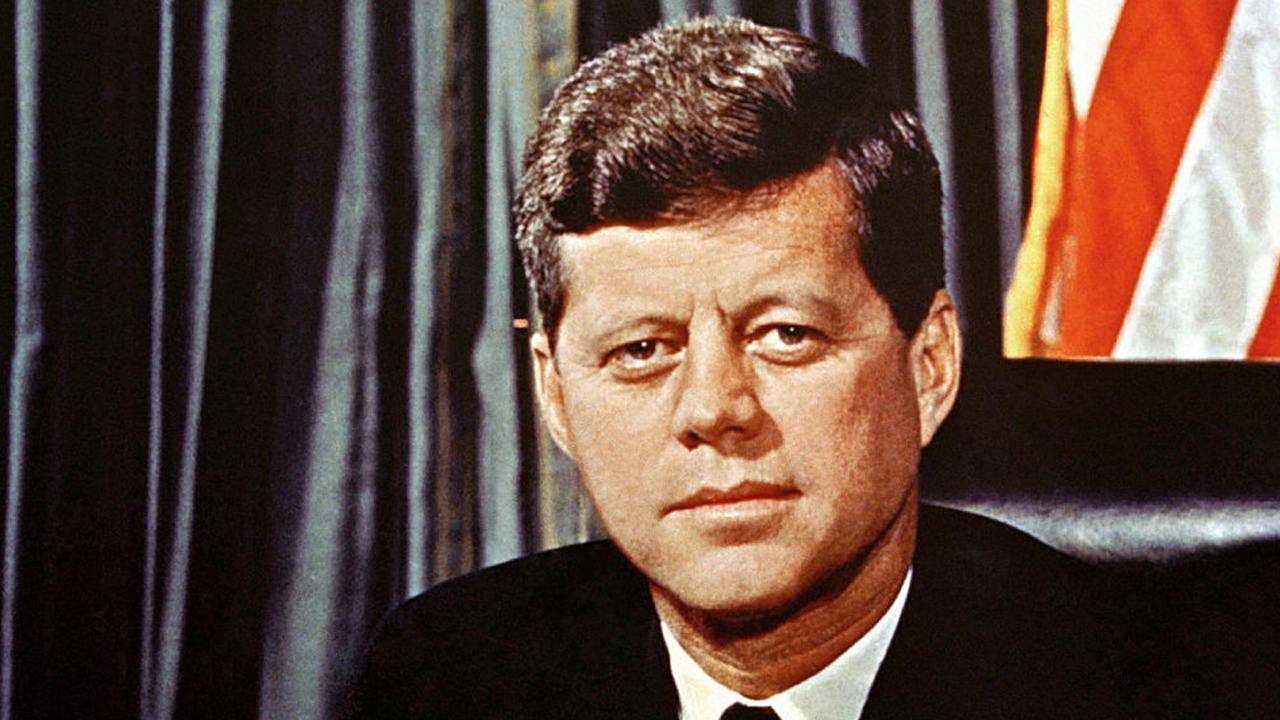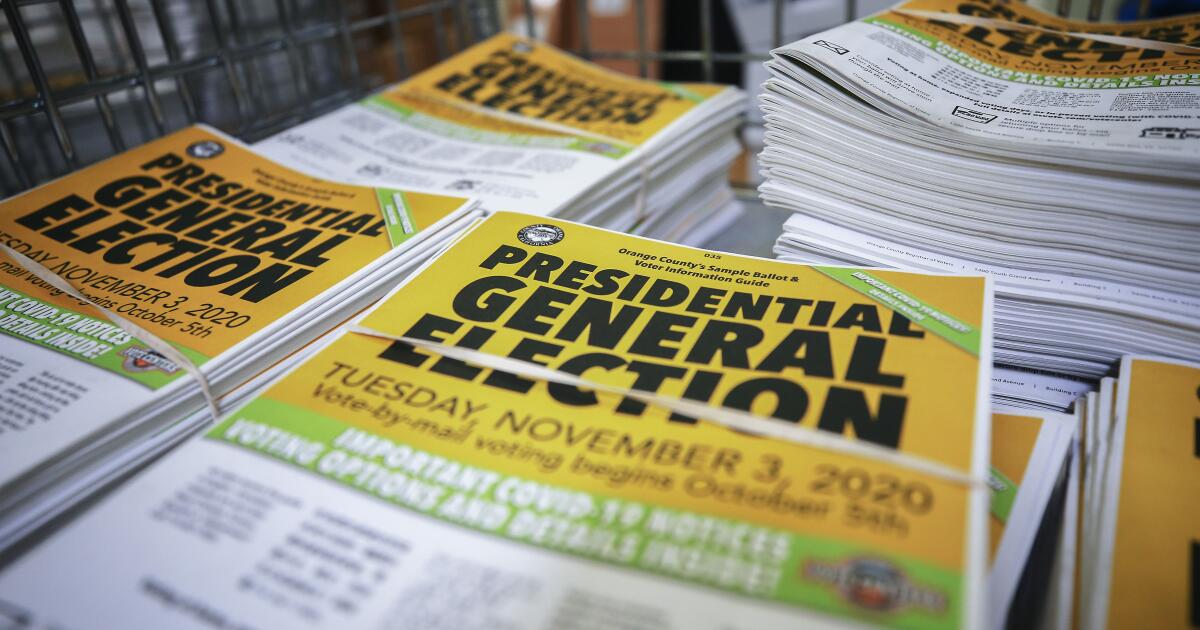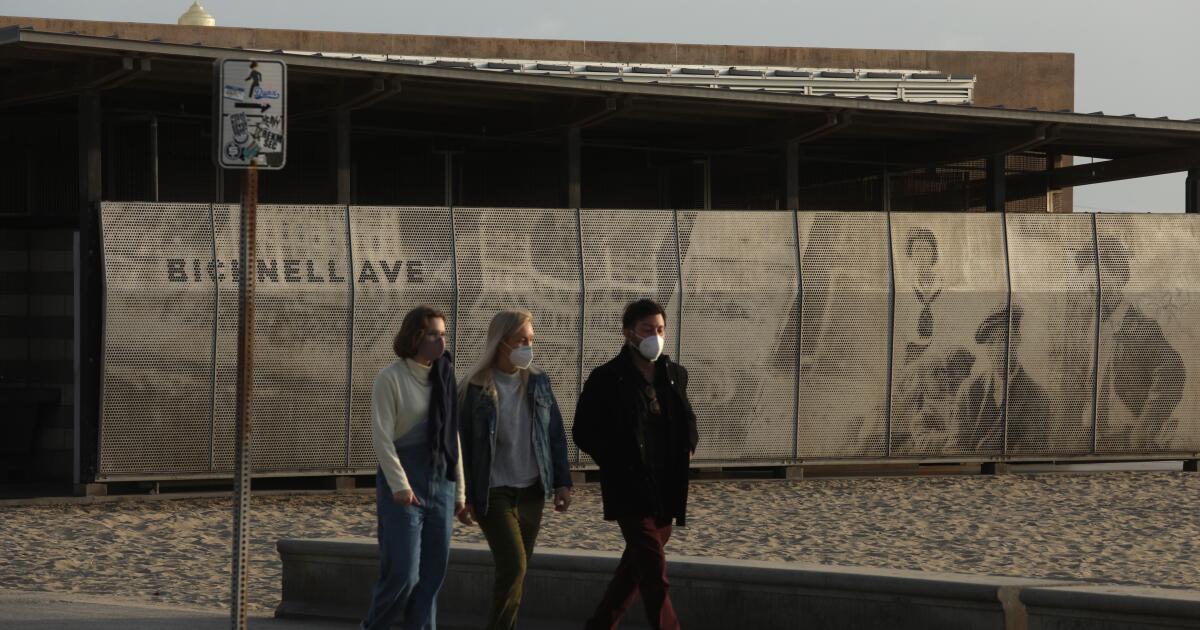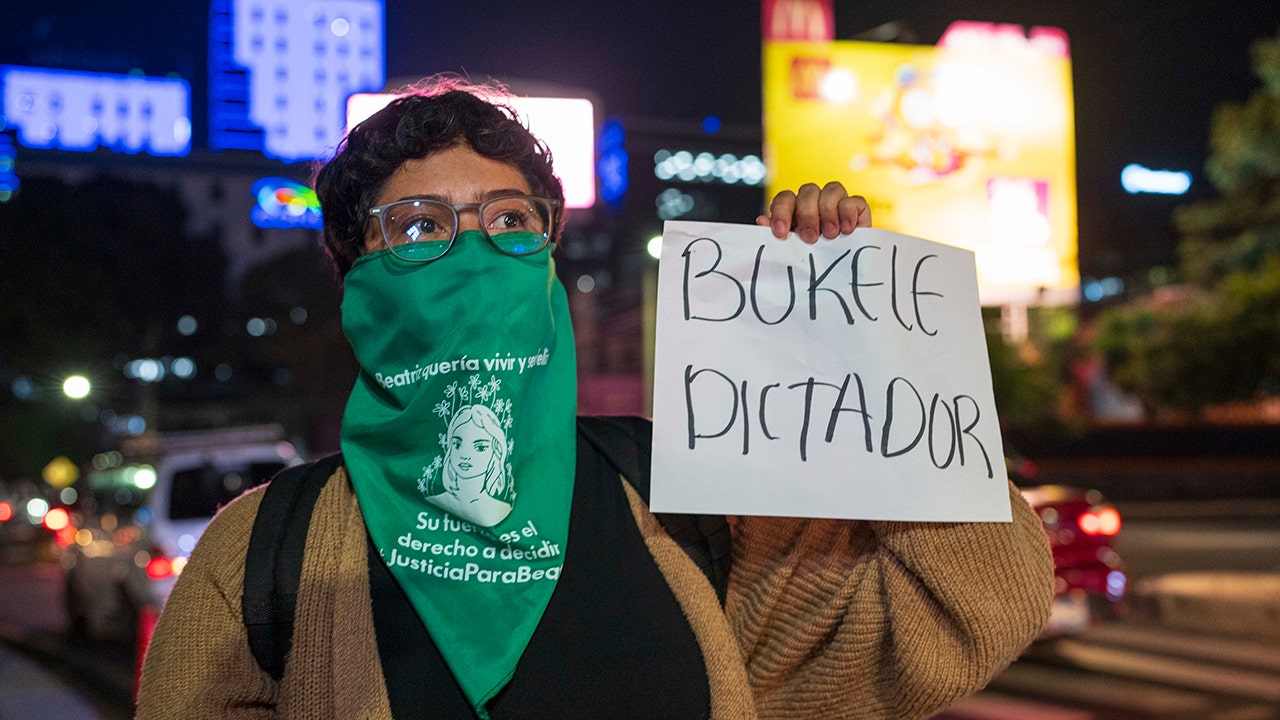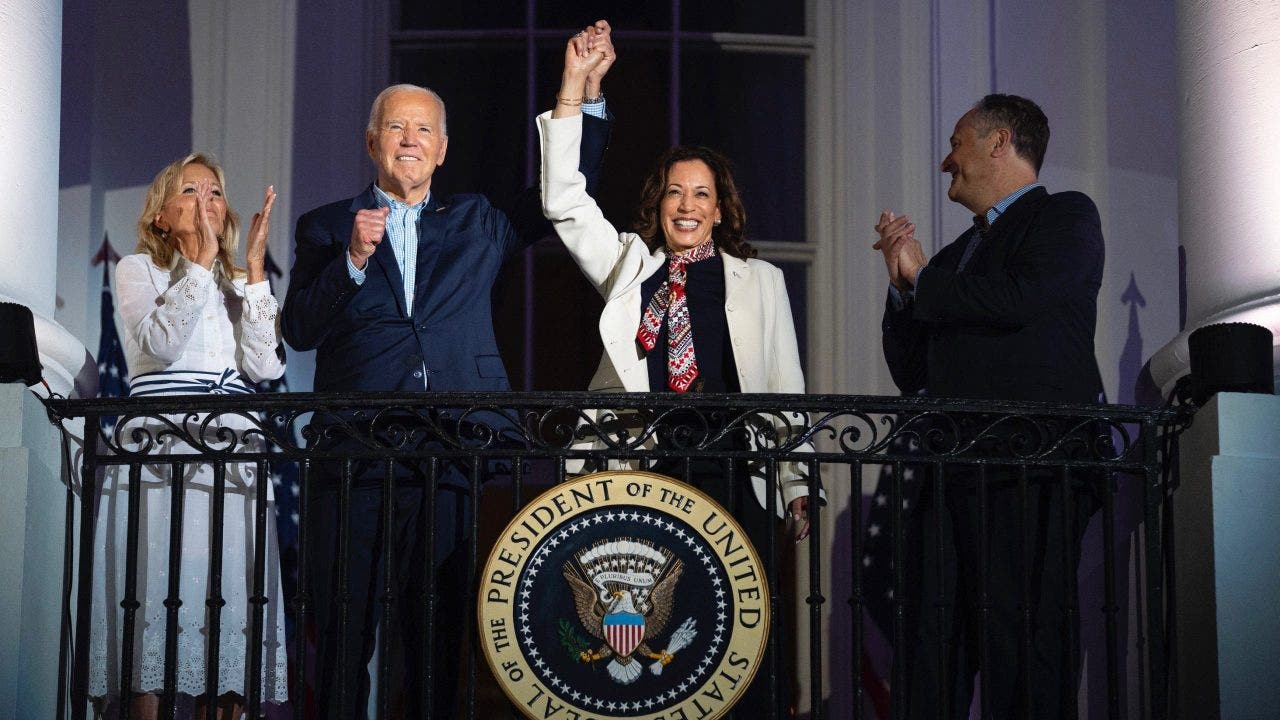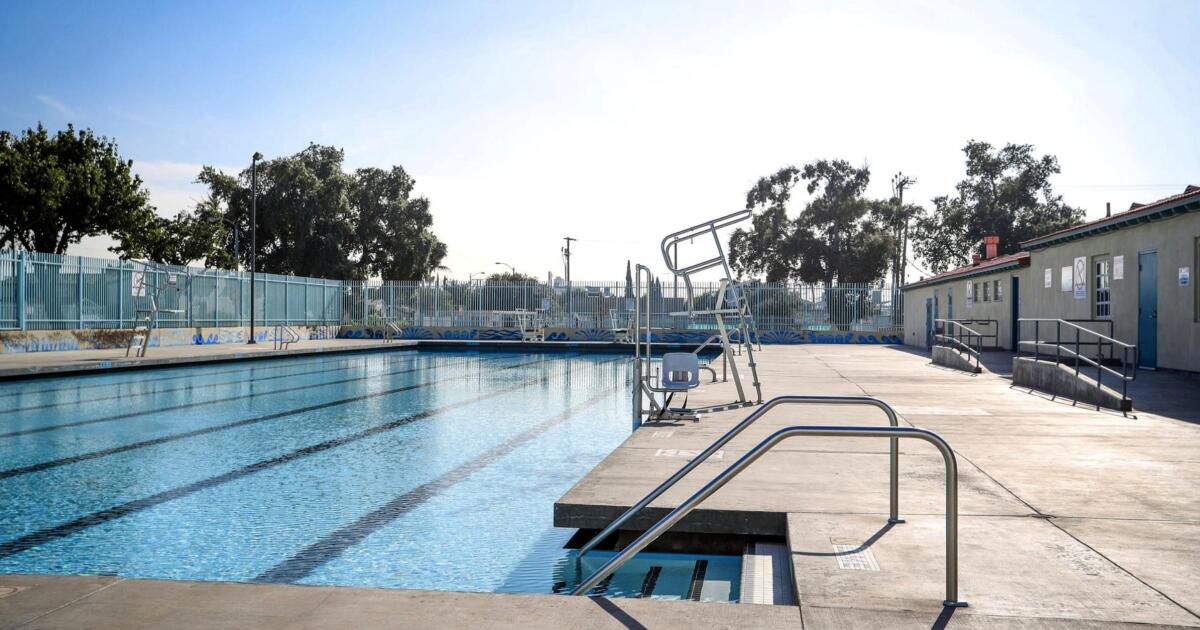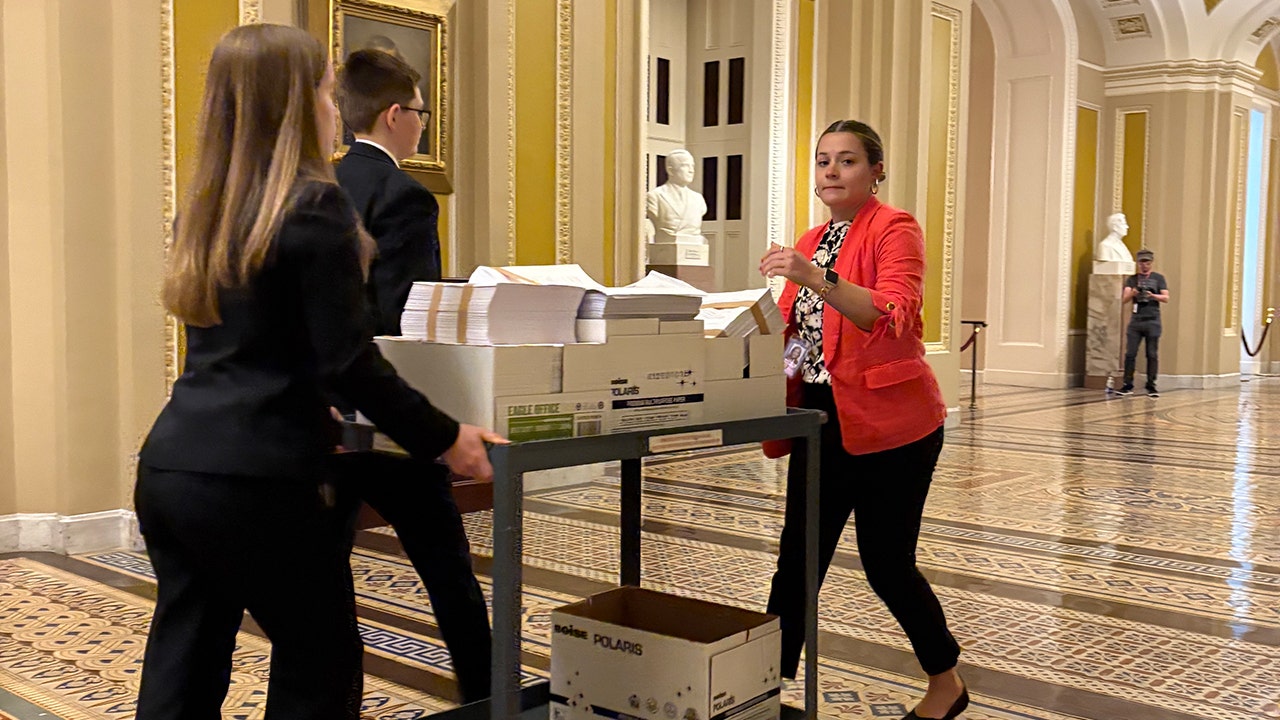President John F. Kennedy ushered in a new era in White House communications when he hosted the first live televised presidential press conference on this day in history, January 25, 1961.
“The fact is that [at] “When President Kennedy started televised press conferences, there were only three or four newspapers in the entire United States that published a complete transcript of a presidential press conference,” Kennedy press secretary Pierre Salinger told the JFK Presidential Library. in an oral history report of the 35th president.
“So what people read was a distillation… We thought they should have the opportunity to see it in its entirety.”
ON THIS DAY IN HISTORY, JANUARY 24, 2003, THE DEPARTMENT OF HOMELAND SECURITY IS ESTABLISHED AS A CABINET AGENCY
The president had taken office just five days earlier.
The press conference was held in the new State Department auditorium in Washington, DC. The Cold War weighed heavily on the proceedings.
The new president made a series of three announcements, the first related to discussions on the atomic testing ban in Geneva, Switzerland.
Semi-general view of the press conference in Washington, DC, as President Kennedy is shown at his first press conference since taking office. At the conference, which was televised live from the State Department's new auditorium, the president said he was asking that Geneva negotiations with Russia for a nuclear test ban treaty be postponed until the end of March. (Getty Images)
He then referred to relief efforts amid the ongoing civil war in the Congo, which became a proxy war between rival factions backed by the Soviets and Americans.
Kennedy also announced that American Air Force officers Captain John R. McKone and Captain Freeman “Bruce” Olmstead had been freed by the Soviet Union after more than six months in captivity.
Four other airmen were killed when their RB-47 bomber was shot down by a Soviet fighter plane over disputed airspace in the Bering Sea on July 1, 1960, just weeks after the more famous U2 incident of May 1960. .
The Cold War weighed heavily on the first televised presidential press conference.
The president then opened the floor for questions.
“Can you think of any circumstances that would justify resuming things like the U2 flight?” asked a journalist in the first media question posed to a president before a live television audience.
(Look the following video).
“Flights of American aircraft entering the airspace of the Soviet Union have been suspended since May 1960,” Kennedy responded.
MARINE CORPS COMBAT VET COMBINES BBQ AND CRAFT BEER AT THE MOMENT TRAVELING BREWING IN OREGON
“I have ordered that they not resume,” he also stated.
A second reporter asked Kennedy about rumors that Soviet Premier Nikita Khrushchev might visit the president in Washington in March to discuss nuclear disarmament after United Nations meetings in New York City.
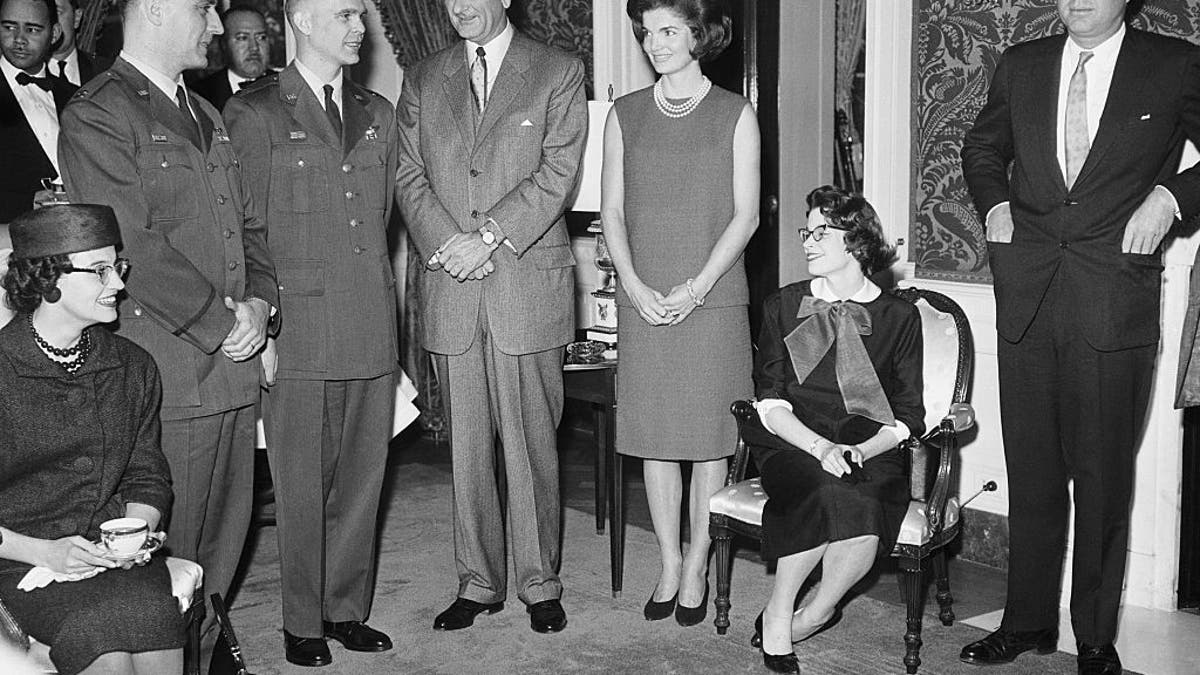
Freed captains: John McKone, Bruce Olmstead and their wives are honored at the White House by (left to right) Vice President Lyndon Johnson, First Lady Jacqueline Kennedy and President John F. Kennedy. The RB-47 bomber flown by American aviators was shot down by a Soviet MiG fighter. (Getty Images)
“I have not heard officially of any proposal by Mr. Khrushchev to come to the United States,” Kennedy said.
The immediacy of the event dramatically changed – or should have changed – the dynamics of the relationship between the seat of federal power and the press.
“In the period before Kennedy's presidency, the rules governing press conferences favored the president.” —White House Historical Association
Independent media, when performing their duties, must represent the American people and serve as a check on the president's power.
“In the period before Kennedy's presidency, the rules governing press conferences favored the president,” the White House Historical Association writes.
“The sessions were off-the-record events from Woodrow Wilson to Harry Truman. If the president said something he considered imprudent, he could disrupt the meeting.”
ON THIS DAY IN HISTORY, SEPTEMBER 26, 1960, KENNEDY AND NIXON BATTLE IN THE FIRST TELEVISED PRESIDENTIAL DEBATE
Woodrow Wilson held the first presidential press conference on March 15, 1913.
President Eisenhower held the first televised press conference on January 19, 1955 using archival footage.
“President John F. Kennedy was the first to use television to address the American people live, without delay or editing,” reports the U.S. Government Publishing Office.
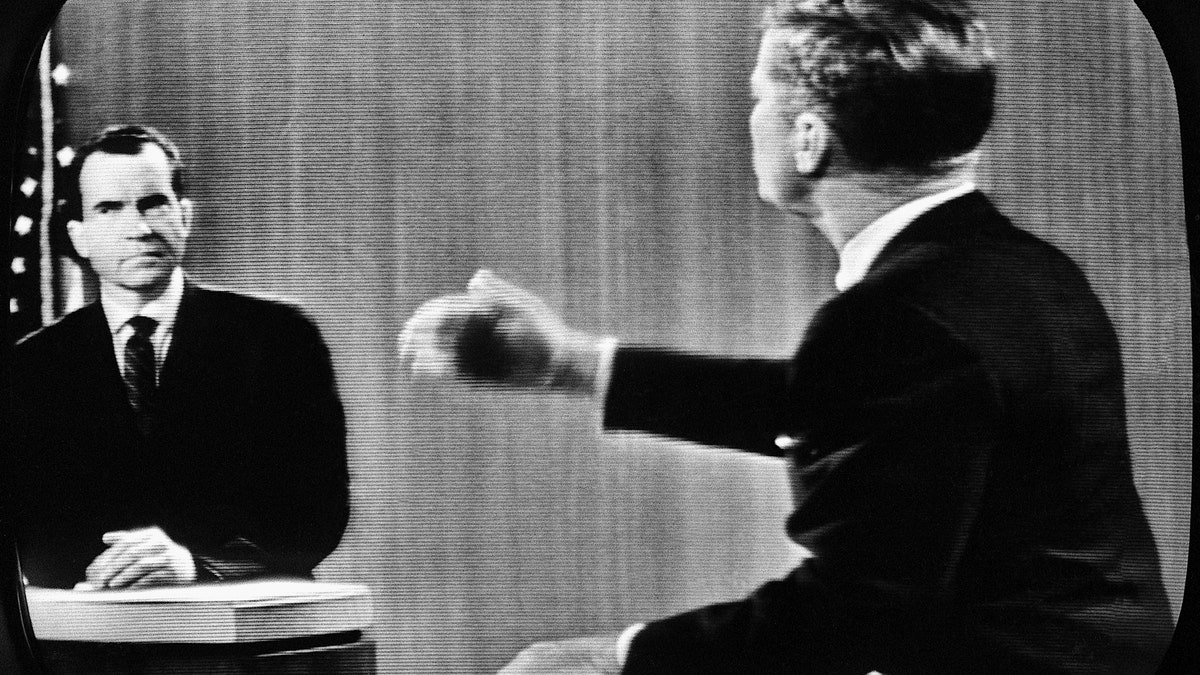
Television screen image of the presidential debates between Vice President Richard Milhous Nixon, left, and Senator John F. Kennedy as Kennedy makes his point. (Getty Images)
The use of television was essential to Kennedy's rise to the Oval Office.
In particular, most Americans agreed that he projected best on television during a series of debates with Vice President Richard Nixon in the fall of 1960.
CLICK HERE TO GET THE FOX NEWS APP
His made-for-TV image proved instrumental in an election that JFK won by the slimmest of margins: he captured 49.7% of the popular vote, compared to Nixon's 49.6%.
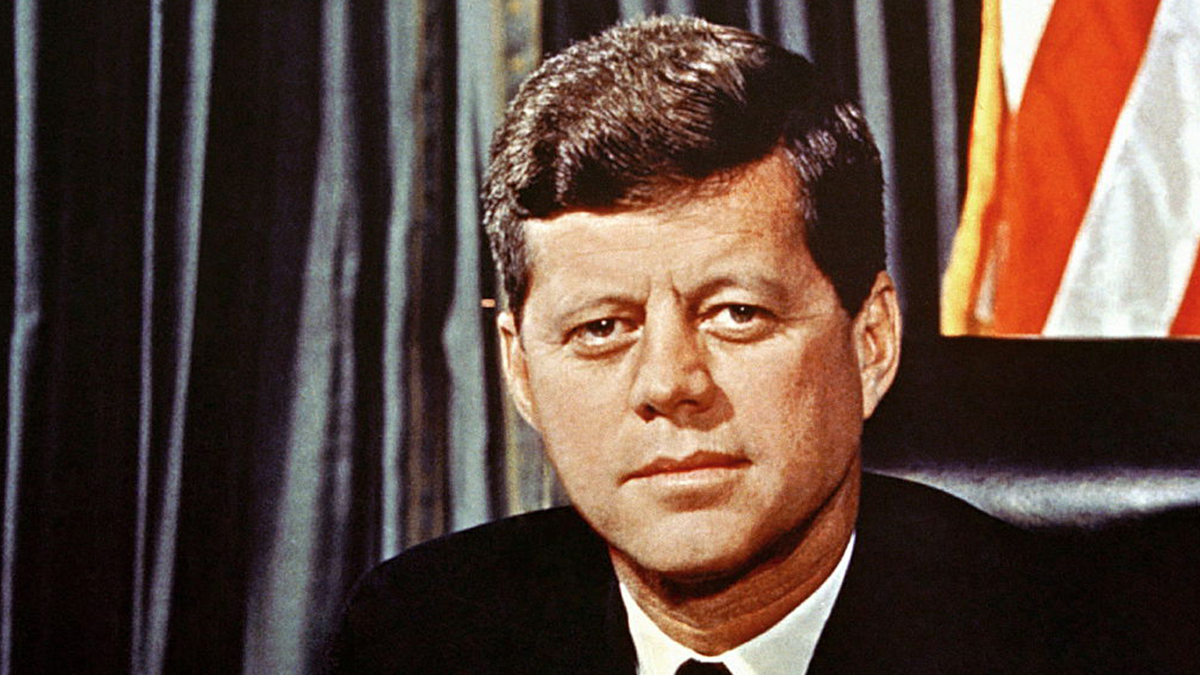
Television cemented Kennedy's enduring image as a young, vibrant, and energetic American leader. He served less than three years in office before her assassination on November 22, 1963. (Getty Images)
The Kennedy-Nixon debates “changed the way presidential campaigns were conducted, as the power of television brought the election to Americans' living rooms,” the National Constitution Center notes.
Television also cemented Kennedy's enduring image as a young, vibrant and energetic American leader, who spent less than three years in office before his assassination on November 22, 1963.
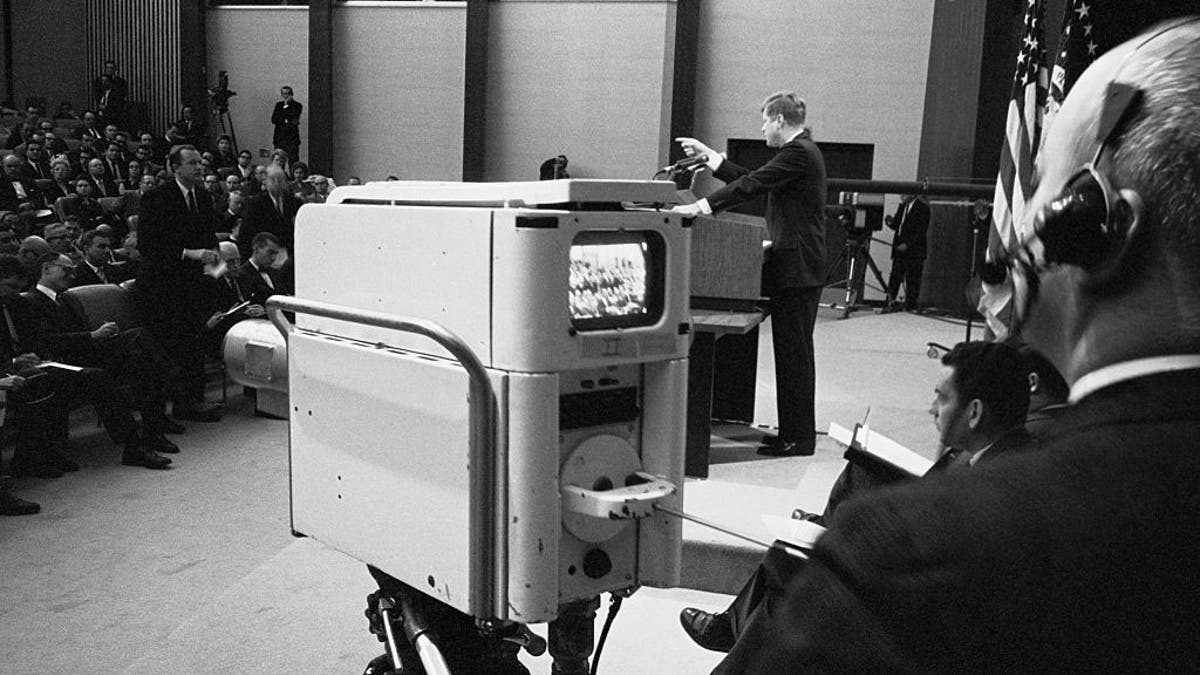
President Kennedy was the first chief executive to allow his press conferences to be televised live from the State Department building, or anywhere else. (Getty Images)
“President Kennedy's press conferences brought with them the glamor of a young leader, an activist political agenda, and a tension between the president and his press corps,” the White House Historical Association states.
CLICK HERE TO SUBSCRIBE TO OUR LIFESTYLE NEWSLETTER
“Young journalists flocked to Washington to cover the new president,” the same source said.
“Journalists were more willing to challenge the new president than in the Eisenhower years… The U2 spy plane incident changed many journalists' relationship with their government. It was an incident in which the US government was caught in the act. a lie”.
For more lifestyle articles, visit www.foxnews.com/lifestyle.

